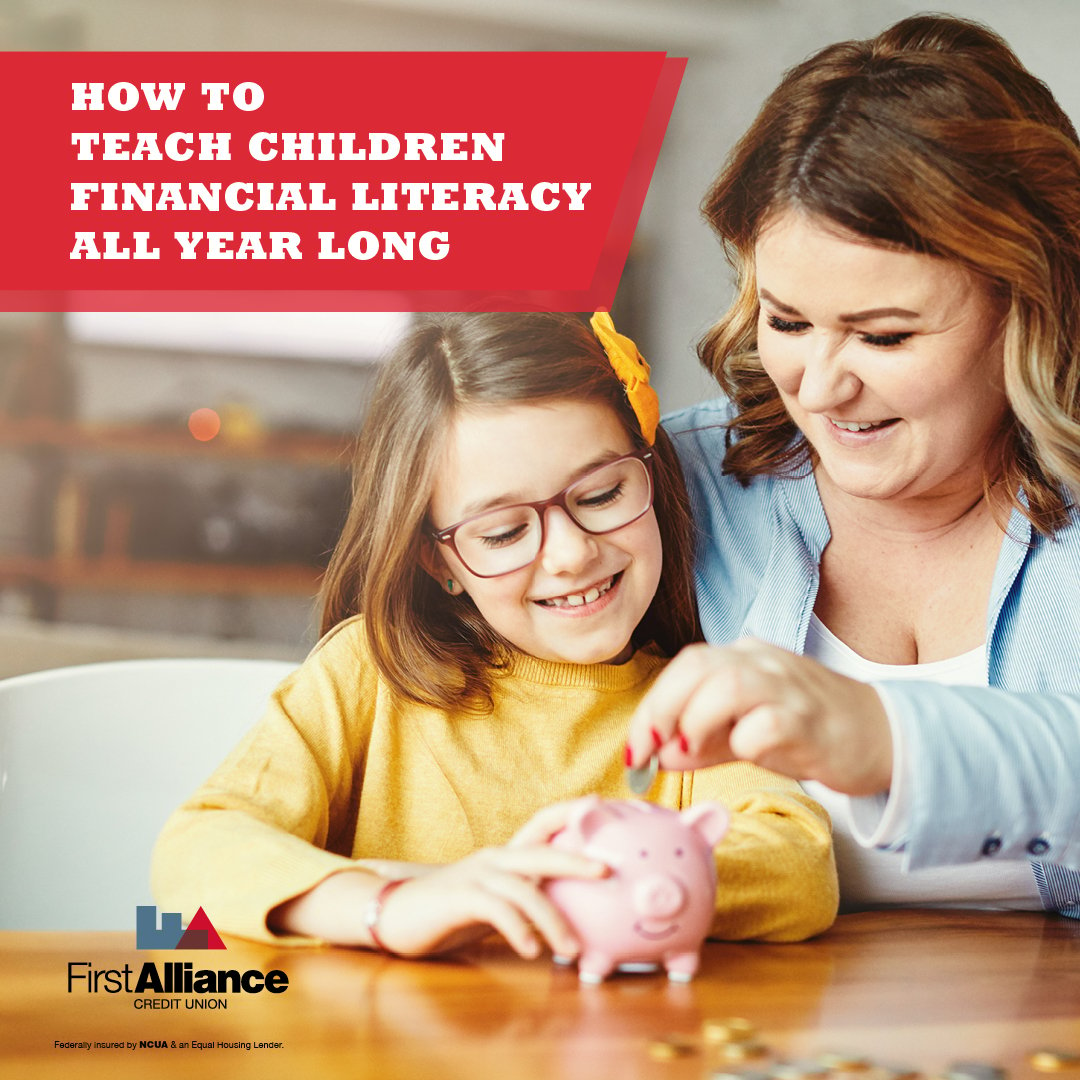How to Teach Children Financial Literacy all Year Long
April is Youth Financial Literacy month, and as part of this several credit unions, including First Alliance, are putting on programs to help...

It's never too early to start teaching kids about money. Good skills that are learned at an early age can have a lasting impact for the rest of a child's life. In fact, this is one of the most important areas where you can truly change the course of your child's life. Educating your children about financial wellness will help them build healthy spending habits for the future.
Here are some great ways to teach your kids about money:
One of the best ways to teach a lesson is by doing so without your child even realizing they are learning. Play games that include a financial component like Monopoly or Life, then help your child make good financial decisions during the game. This will help your child learn the importance of budgeting and planning for the future, all under the guise of play.
An important part of financial literacy is creating a set of priorities. We can't have everything we want all at once, but if we plan ahead, we can hit our goals overtime. This is a lesson children can learn. Sit down with your child and have them list 10 things they want. Then have them rank them from most important to least important. Once the list is created, create a children's saving plan with your kids to help them achieve their wishes by using S.M.A.R.T. goals method.
Take your child shopping and actively explain your decision making process. When you arrive at the store, tell your child how much money you have to spend and what your priorities are. Show your child why you are picking one item over another and explain things like discounts and coupons. Additionally, give your child small amounts of money to spend themselves. You'll be surprised at how happy your child will be to spend $2 on anything they want! They'll also learn the importance of spending with a limited budget.
To teach your child that money is earned through work, make sure the connection between allowance and chores is clear. You can do this by only giving your child an allowance after his or her chores are completed. When your child does an exceptional job, you can even pay them a bonus as a reward for good performance. This will instill the lesson that you have to earn money-it isn't owed to you.
Get a piggy bank that splits money into spending, savings, and giving. Teach your child about what section represents and how they are permitted to use the money in each section. Every time you give them their allowance, talk them through how they plan to allocate their funds.
Place the piggy bank next to your child's wish list, so that their spending and saving goals are clear to them. Also, talk through the causes your child things are important, and when they hit a giving goal, donate the money to that cause in your child's name
Teaching children about finances is easier than it might seem. It just takes a bit of forethought a little patience, and some creativity. Once your child learns the basics of finances, you can increase their financial responsibilities by upping their allowance or bringing them into the conversation about family financial matters.
You can help your children understand more about financial literacy when you get them their own accounts at First Alliance Credit Union. We offer youth and teen savings accounts, as well as special rates on certificates of deposit (CDs).

April is Youth Financial Literacy month, and as part of this several credit unions, including First Alliance, are putting on programs to help...

Talking to kids about money can be a daunting task for many parents, but it’s an essential part of teaching your children financial literacy. When...

When you teach your kids financial literacy—the knowledge and skills you need to make effective, informed decisions about money management—you're...